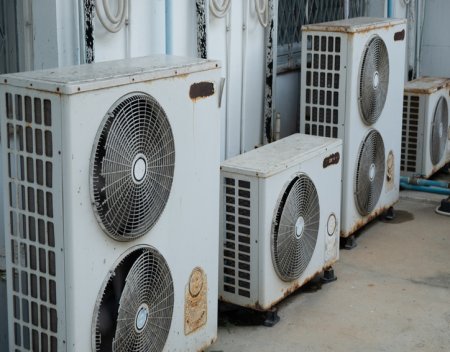Blog Categories
- Appliances Four
- Athletic Seating
- Auto Helpers
- Automated Stock Rooms
- Chocolate Four
- CuraFlo
- Damaged Goods Dating
- Flood Insurance Four
- Game Addict
- Hi Tech Pest Control
- HVAC Four
- Medical Labels Four
- Mental Health Four
- National CWS
- Promotional Ideas
- Seguros Lara Insurance
- Stem Cell Worx
- The Hidden Truth
- The Last Refuge
- The Mozilla Blog
- Video Editing Four
- Web Design Dev
- Website Development Four
- Windows Blog
HVAC Systems: When Should You Replace Yours?

Heating and cooling units lose their productivity as they age. This may lead to frequent breakdowns, expensive service appointments, or a costly unit replacement. We have compiled a list of factors to take into consideration when determining if you should have your HVAC system repaired or replaced-and what to keep in mind when purchasing a new unit. Repair or Replace? Air conditioning systems and heat pumps fail efficiency and degrade very often in a span of 10 years. If your HVAC system is more than 10 years old, it is time to put into consideration major HVAC repairs or even replacement. With proper maintenance and care, HVAC systems can last up to 10-15 years. By starting to search for an early replacement, you can often prolong the lifespan of your present system and take action to start saving money to put into a brand-new unit or system once the need for it arises. If you recognize any of the following issues, it may likely be the time to call one of our HVAC experts to run diagnostic tests on your system: Growing Energy Bills A spike on your energy use - outside a standard seasonal alteration - could indicate a problem with your HVAC system. If you have been in your house for over a year, then compare your utility bills to ascertain whether you are always above your previous year’s electricity use. Problems in Humidity Your home may be too humid during summertime or too dry during wintertime. Humidity problems are a sign that there could be problems with your ductwork. For many, this can be a viable DIY job-though expensive and time intensive. For many, however, replacement and installation of ductwork are left to HVAC professionals. Irregular Temperatures Homes with more than one floor will experience temperature changes with a one-zone system. A broad variance in temperatures between rooms-even on precisely the exact same degree-or between flooring might indicate there is something wrong on your system. Call one of our service technicians to help diagnose if this is a very simple problem with your thermostat having to be recalibrated or maybe an even more serious issue like leaking ductwork. Regular Repairs Making frequent fixes to your system every year? Sprung a freon flow? It may make more sense to buy a new HVAC system and consume the short-term price than to continue to spend more money through regular, expensive repairs. Bi-annual maintenance is highly recommended for these HVAC systems-once in the fall before winter and once in the spring before summer. Proper maintenance of these units is essential to make sure the functionality is adequate and efficient and also to prolong the life of your system. Should you encounter any issues with your HVAC systems or for consultation whether it needs to be repaired or replaced, do not hesitate to contact the experts of Twintech Heating and Cooling. Call us TODAY!
Re Posted From: HVAC Systems: When Should You Replace Yours?

Heating and cooling units lose their productivity as they age. This may lead to frequent breakdowns, expensive service appointments, or a costly unit replacement. We have compiled a list of factors to take into consideration when determining if you should have your HVAC system repaired or replaced-and what to keep in mind when purchasing a new unit. Repair or Replace? Air conditioning systems and heat pumps fail efficiency and degrade very often in a span of 10 years. If your HVAC system is more than 10 years old, it is time to put into consideration major HVAC repairs or even replacement. With proper maintenance and care, HVAC systems can last up to 10-15 years. By starting to search for an early replacement, you can often prolong the lifespan of your present system and take action to start saving money to put into a brand-new unit or system once the need for it arises. If you recognize any of the following issues, it may likely be the time to call one of our HVAC experts to run diagnostic tests on your system: Growing Energy Bills A spike on your energy use - outside a standard seasonal alteration - could indicate a problem with your HVAC system. If you have been in your house for over a year, then compare your utility bills to ascertain whether you are always above your previous year’s electricity use. Problems in Humidity Your home may be too humid during summertime or too dry during wintertime. Humidity problems are a sign that there could be problems with your ductwork. For many, this can be a viable DIY job-though expensive and time intensive. For many, however, replacement and installation of ductwork are left to HVAC professionals. Irregular Temperatures Homes with more than one floor will experience temperature changes with a one-zone system. A broad variance in temperatures between rooms-even on precisely the exact same degree-or between flooring might indicate there is something wrong on your system. Call one of our service technicians to help diagnose if this is a very simple problem with your thermostat having to be recalibrated or maybe an even more serious issue like leaking ductwork. Regular Repairs Making frequent fixes to your system every year? Sprung a freon flow? It may make more sense to buy a new HVAC system and consume the short-term price than to continue to spend more money through regular, expensive repairs. Bi-annual maintenance is highly recommended for these HVAC systems-once in the fall before winter and once in the spring before summer. Proper maintenance of these units is essential to make sure the functionality is adequate and efficient and also to prolong the life of your system. Should you encounter any issues with your HVAC systems or for consultation whether it needs to be repaired or replaced, do not hesitate to contact the experts of Twintech Heating and Cooling. Call us TODAY!
Re Posted From: HVAC Systems: When Should You Replace Yours?

